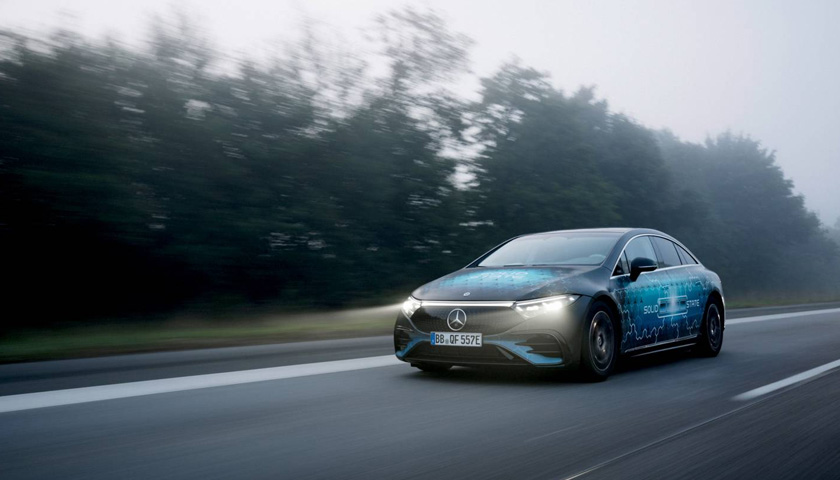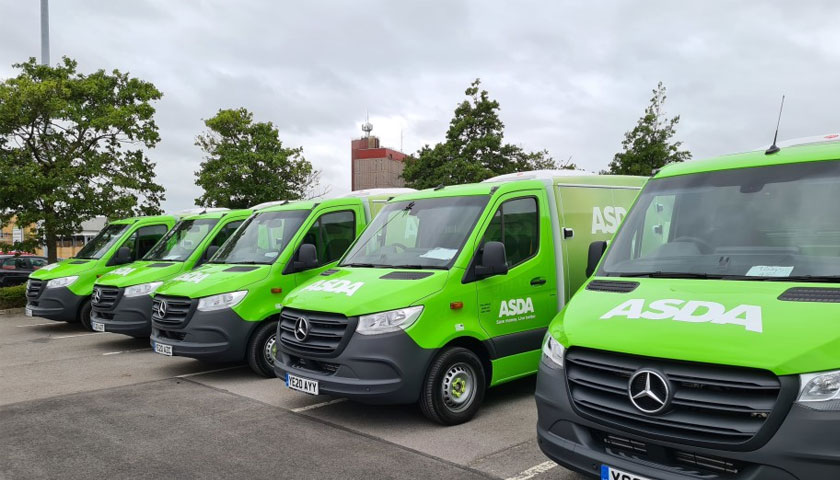The need for the auto industry to speed up the switch to electric vehicles increased further, as national postal companies Swiss Post and Austrian Post committed to electrify their delivery fleets by 2030.
The national flagship companies – delivering daily postal services to millions of customers in Austria and Switzerland – have joined the global electric vehicles initiative EV100 which aims to make electric transport ‘the new normal’ by 2030.
EV100 is led by The Climate Group, the international non-profit focused on accelerating climate action. Other new members announced today are Portugal’s EDP and New Zealand’s Meridian Energy.
Together, the four companies will switch 22,000 fossil-fuel vehicles to electric. With two out of three new cars in Europe being sold to the private sector, business commitments to electric vehicles send a clear signal of demand for EVs to automakers.
The news comes as the global auto industry gathers at the Geneva Motor Show, where brands like Honda, Mercedes-Benz, Volkswagen and KIA are set to exhibit new electric vehicles – but combustion engine models continue to dominate.
Helen Clarkson, CEO, The Climate Group, said:
“Today’s EV100 announcements show demand for electric vehicles is on the up.
“With logistics companies operating some of the world’s biggest delivery fleets, these businesses are well placed to accelerate the switch to electric vehicles, tackle climate change and reduce air pollution in cities.
“The EV transition is well underway. To stay competitive, all major companies should start transitioning their fleets now, and automakers must get on with increasing supply – or else risk losing out on this huge opportunity.”
As the need to tackle climate change becomes ever more urgent and many cities look to address air pollution by introducing low or zero emissions zones limiting access of polluting vehicles, companies are switching to electric vehicles to lower business risk and future-proof their operations.
Austrian Post is the largest logistics business in Austria. The company already operates the largest electric vehicle fleet in the country and will switch more than 9,000 vehicles to electric as part of EV100. Committing to go fully electric through EV100 will drive innovation and ensure long-term competitive advantage for the business.
Georg Pölzl, CEO, Austrian Post, said:
“Austrian Post has been relying on the deployment of electric vehicles within the context of its CO₂ NEUTRAL DELIVERY initiative since 2011, making it a trailblazer in green logistics. About 1,600 electric-powered bikes, mopeds, quads and cars are already in use in Austrian Post’s daily business.
“As the country’s leading logistics company, we want to leverage the public’s familiarity with us to show that e-mobility works well in our regular operations and is also profitable. Our joining the EV100 initiative and the objective of having 100% e-vehicles on the last mile by the year 2030 comprise a logistical step on our journey towards CO₂-free and pollution-free logistics.”
Post CH Ltd (a subsidiary of Swiss Post Ltd) will switch more than 10,000 vehicles to electric under EV100. To accelerate climate action and to reach carbon neutral delivery, Post CH sees investing in a modern fleet of vehicles with energy-efficient, alternative drive systems and a well-designed logistics strategy as key.
Post CH has already electrified its mail delivery fleet consisting of 6,000 electric three-wheeled vehicles and now wants to switch 4,600 delivery vans (up to 3.5t) and 180 service vehicles to EVs by 2030, if market supply and operating and real estate conditions allow. All of Post CH electric vehicles are 100% powered by “naturemade star”- certified renewable energy from Switzerland. Furthermore, Post CH supports the uptake of electric vehicles by its staff by installing charging infrastructure at its largest sites.
Marco Reber, CEO of Post Company Cars Ltd, fleet management company for Post CH Ltd, said:
“We have the largest fleet of electric three-wheeled scooters of its kind in Europe in use for mail delivery in Switzerland, running on green electricity produced in Switzerland. We are acting today for tomorrow by increasing the use of energy-efficient electric vehicles for parcel deliveries and service trips in order to further reduce CO2 emissions and to save on operational costs. For the many stop-and-gos in delivery, to improve air quality and to reduce noise, EVs are the most optimal drive concept. Furthermore we support the uptake of electric vehicles by our staff.”
Pieter Reitsma, Manager, Sustainability, International Postal Corporation, of which Austrian Post and Swiss Post are members, said:
“As recent stakeholder research has shown, our customers consider low carbon transport to be the most important opportunity to extend our sector’s sustainability efforts. Switching from fossil fuelled vehicles to electric vehicles represents a significant step towards further reducing carbon emissions from our delivery fleet. We therefore strongly encourage our participants to join the EV100 initiative.”
EDP has committed to switch a fleet of more than 3000 vehicles to electric. This transition has already begun and will now be accelerated to reduce CO2 emissions by 70%.
The company has an overall target of reducing its CO emissions 75% by 2030, from a 2005 baseline, and sees electric transport as a key part, alongside with investment in renewable energy and energy efficiency for both its own operations and customer products. Sustainability is a core part of EDP’s DNA and continuing to grow while meeting the challenges of sustainable development is a commitment the company has with its stakeholders.
António Mexia, CEO, EDP Energias de Portugal, said:
“The energy transition is triggering further interaction between smart mobility and the power sector. Today, it is clear that electric mobility plays and will play a key role as a major enabler of decarbonization. EDP is proud to be one of the companies leading this change with a series of initiatives to accelerate this development. We recently committed to have a 100% electric fleet by 2030 and we are focused on new commercial solutions and partnerships to facilitate the adoption of electric vehicles.”
Meridian Energy will switch its fleet of 35 vehicles to EVs and install charging facilities at its offices. The company already operates a 50% electric fleet and sees a strong business case.
The EV fleet costs Meridian Energy the same in capital expenditure as its previous fossil fuel fleet, has lower running costs and higher residual values. On average, the company is saving around US$ 3400 (NZ$ 5000) a year on maintenance and fuel costs for each vehicle.
Neal Barclay, CEO, Meridian Energy Limited, said:
“In New Zealand the electrification of transport is the single biggest opportunity we have to combat climate change and it is an opportunity we must take. Meridian is committed to helping New Zealand achieve a low emissions economy.”
With these and other commitments from a growing number of international businesses such as Deutsche Post DHL and LeasePlan, The Climate Group is seeing the electrification of more than two million vehicles by 2030 through its EV100 initiative.



